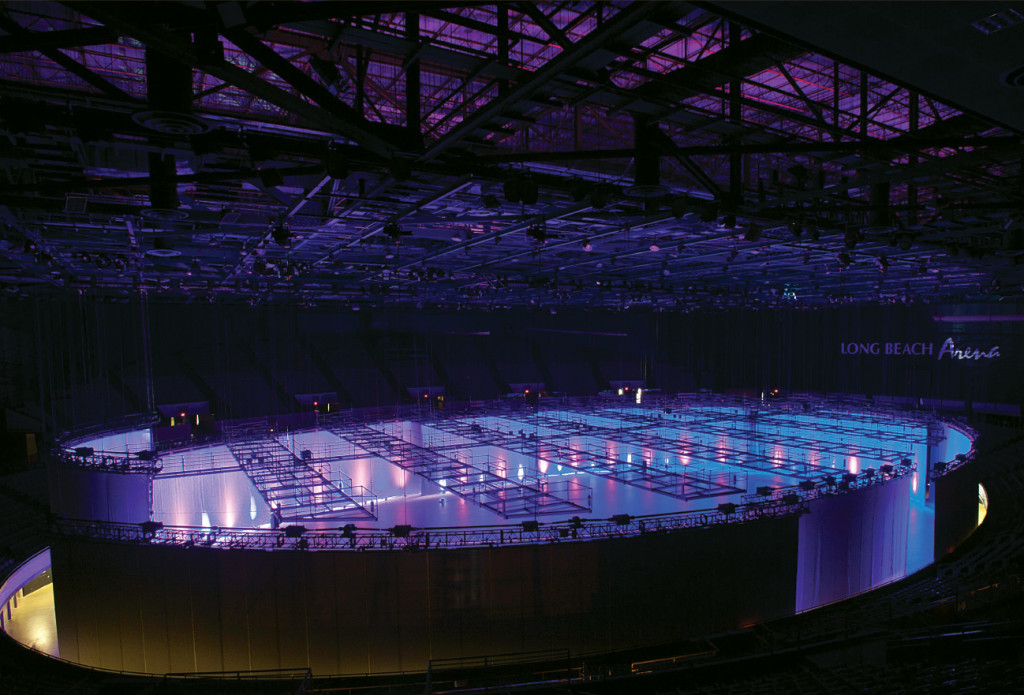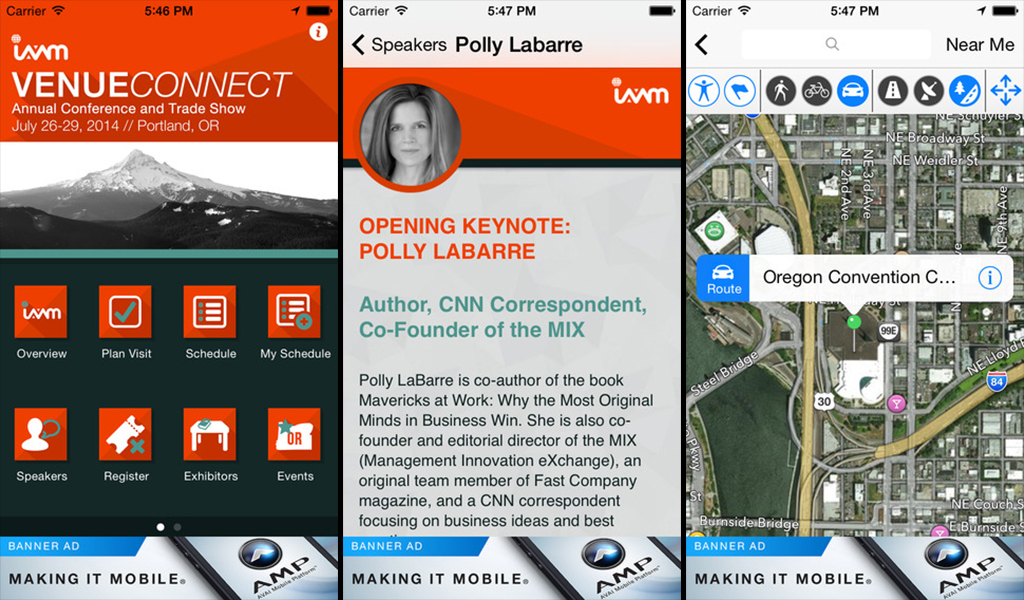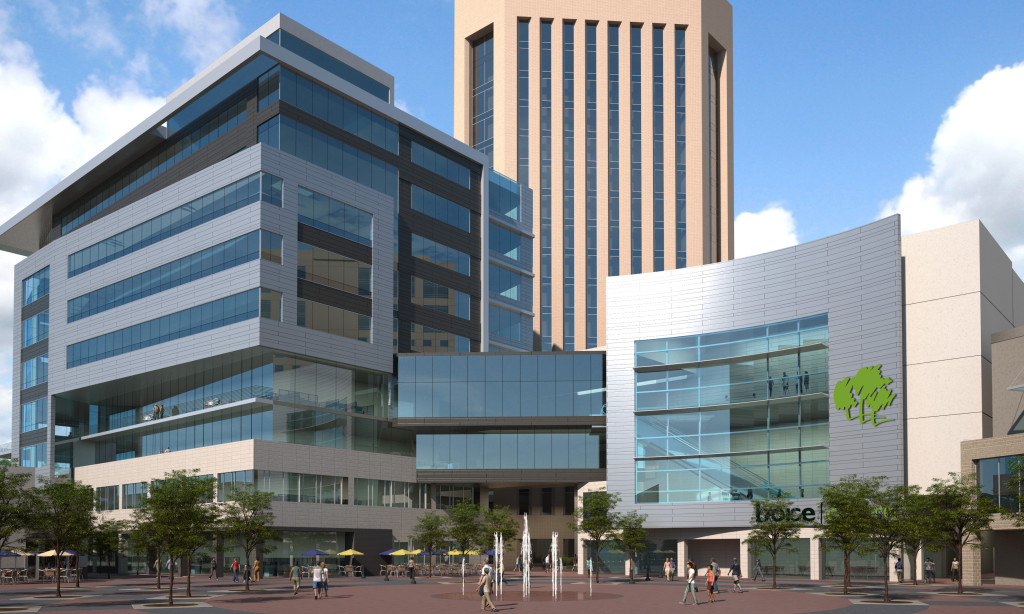Enhancing the Sensory Experience Through Wearables
Wearables, wearables, wearables—they’re everywhere, or at least they’re going to be everywhere soon. Whether they’re on your wrists, threading through your shirts, or floating on your eyes, we’ll all soon be able to know more about ourselves and easily control our worlds. It’s a movement that I’m pretty excited about, especially when it affects live events, such as music festivals.
NBC News recently published a story about wearables and the future of concerts. One of the interviewees was Martina Wang, head of music and entertainment for Eventbrite, who talked about the increasing popularity of live streaming music festivals.
“While many in the industry feared that streaming would cannibalize ticket sales, festivals are actually finding that it serves as an ideal advertisement for future attendees, Wang said,” Everett Rosenfeld reported for NBC News.
Rosenfeld wrote that concert attendees are more than ever using their mobile devices for everything from holding tickets to arranging meet-ups to social media blasts.
“But the firms building apps for payment and moment-sharing are not thinking big enough, said Nick Panama, co-founder of music label-turned event technologies company Cantora,” Rosenfeld reported. “Relying on phones and apps is detracting from the concert experience, he said.”
Technology, Panama said, needs to enhance the sensory experience, and his company is working on ways to do that with a project called Nada.
“Nada employs wearable technology to merge the convenience of mobile app functions, including cashless payment and paperless ticketing, while surpassing the connective and analytic capabilities of social media,” Rosenfeld reported. “All of this is contained in a faceless and input-less wristband.”
Check out the NBC News story to learn more about how technology and wearables will change the concert going experience.
(Image: Cantora)
Experience Long Beach Arena’s “Flying Grid” at AMC
The June/July issue of FM magazine is printed and currently mailing. Our cover story is a profile of IAVM’s in-coming chair, Kim Bedier, CFE. Other feature topics include emergency response lessons from commercial airlines, college sports and alcohol, and why you should give a man a moose.
One of the more fun sections is our Up Close spread, where we feature a venue or event along with some interesting facts. For this issue, we profiled the Long Beach Arena (pictured above), which recently installed a large”flying” suspended steel-tension grid as part of its Pacific Ballroom renovation. Attendees of the Arena Management Conference (AMC), September 14-16, will have a chance to experience the renovated Long Beach Arena when they visit as part of the conference.
This year’s AMC sessions include discussions about mobile technology, non-musical shows, the dangers of in-house promoting, and more. Please visit the conference website for more information and to register. Early-bird registration ends August 8.
(Image: Long Beach CVB)
VC14: Download Our Conference App
If you’re attending this year’s VenueConnect, you’ll want to download the conference app before you leave home. Powered by AVAI Mobile Solutions, the app gives you access to speaker bios, offers real-time notifications, schedule updates, and you’ll be able to create a personal itinerary to remind you of the sessions, programs, and events you don’t want to miss.
You can download the app directly from the App Store or Google Play.
Connecting With What Your Customers Care About
Loretta Hudelot wants to help you be smarter in your job, and one way to do that is to know what your customers care about and what your customers’ customers care about.
Hudelot, the enterprise insights manager for Freeman Companies, will present a session at this year’s VenueConnect on Sunday, July 27, that will give attendees insights into how technology is affecting businesses and how it has changed what customers want from companies.
Greg Wolfe, IAVM’s professional development manager, recently spoke with Hudelot about her session, and you can listen to his short interview above to learn more about her session and to understand what’s going on with event technology.
Boise Centre Expansion Breaks Ground
The Boise Centre broke ground on its expansion earlier this month. The expansion is part of the Civic Center Plaza development in downtown Boise and is adjacent to the current facility.
“Over the years, Boise Centre has built a reputation for delivering the highest levels of guest service and quality events,” said IAVM member Pat Rice, executive director of the convention center. “Our vibrant city and newly expanded meeting space will position Boise to secure larger regional and national conventions that will benefit our local economy.”
The new construction and planned renovations to the existing building will nearly double the Boise Centre’s current 50,000 square feet of meeting and event space. Completion is estimated in the third quarter of 2016. The expanded space will include a 15,000-square-foot ballroom, 14,000 square feet of flexible meeting space, 7,000 square feet of prefunction/lobby space, and connectivity to the existing Boise Centre via a skywalk. The expansion is being built directly across the Grove Plaza (civic plaza) from the existing Boise Centre. The lead architecture firm is tvsdesign of Atlanta, along with Conventional Wisdom Consulting.
The City Center Plaza project is being developed by Gardner Company and will include not only the expansion of Boise Centre expansion, but also construction of the Clearwater Building, a technology focused office building that will include the Boise State University computer science department, a multi-modal transit center, and restaurant and retail spaces.
Do you want to receive a Front Row News weekly digest?
Categories
- Allied (861)
- Architecture (147)
- Arenas (747)
- Career (897)
- Convention Centers (895)
- Education (623)
- Events (1,544)
- Food & Beverage (193)
- Foundation (113)
- Guest Experience (1,496)
- Industry News (2,270)
- Leadership (1,888)
- Marketing (150)
- Membership (2,000)
- Music (213)
- Performing Arts Centers (454)
- Professional Development (409)
- Research (127)
- Safety & Security (442)
- Sports (763)
- Stadiums (608)
- Student (159)
- Technology (516)
- Ticketing (92)
- Touring (82)
- Trends (364)
- Uncategorized (753)
- Universities (218)
- Video (25)
- Young Professional (198)
Twitter Feed
- Twitter feed loading
Recent Posts
- College Park Center and Texas Hall Welcome Kristina Hill to Executive Director Role
- Cincinnati Convention Center Appoints Brian Clark as Assistant General Manager
- Capital One Arena Hosts Record-Setting PWHL Game, Highest-Attended In-Arena Game in U.S. Women’s Hockey History
- VenuWorks Appoints Local Arts Advocate Matt Hammond as Executive Director of Paramount Arts Center
- Dale Adams, CVE, Named Executive Director of Arizona State Fair
Categories
- Allied
- Architecture
- Arenas
- Career
- Convention Centers
- Education
- Events
- Food & Beverage
- Foundation
- Guest Experience
- Industry News
- Leadership
- Marketing
- Membership
- Music
- Performing Arts Centers
- Professional Development
- Research
- Safety & Security
- Sports
- Stadiums
- Student
- Technology
- Ticketing
- Touring
- Trends
- Uncategorized
- Universities
- Video
- Young Professional
Archives
- January 2026
- December 2025
- November 2025
- October 2025
- September 2025
- August 2025
- July 2025
- June 2025
- May 2025
- April 2025
- March 2025
- February 2025
- January 2025
- December 2024
- November 2024
- October 2024
- September 2024
- August 2024
- July 2024
- June 2024
- May 2024
- April 2024
- March 2024
- February 2024
- January 2024
- December 2023
- November 2023
- October 2023
- September 2023
- August 2023
- July 2023
- June 2023
- May 2023
- April 2023
- March 2023
- February 2023
- January 2023
- December 2022
- November 2022
- October 2022
- September 2022
- August 2022
- July 2022
- June 2022
- May 2022
- April 2022
- March 2022
- February 2022
- January 2022
- December 2021
- November 2021
- October 2021
- September 2021
- August 2021
- July 2021
- June 2021
- May 2021
- April 2021
- March 2021
- February 2021
- January 2021
- December 2020
- November 2020
- October 2020
- September 2020
- August 2020
- July 2020
- June 2020
- May 2020
- April 2020
- March 2020
- February 2020
- January 2020
- December 2019
- November 2019
- October 2019
- September 2019
- August 2019
- July 2019
- June 2019
- May 2019
- April 2019
- March 2019
- February 2019
- January 2019
- December 2018
- November 2018
- October 2018
- September 2018
- August 2018
- July 2018
- June 2018
- May 2018
- April 2018
- March 2018
- February 2018
- January 2018
- December 2017
- November 2017
- October 2017
- September 2017
- August 2017
- July 2017
- June 2017
- May 2017
- April 2017
- March 2017
- February 2017
- January 2017
- December 2016
- November 2016
- October 2016
- September 2016
- August 2016
- July 2016
- June 2016
- May 2016
- April 2016
- March 2016
- February 2016
- January 2016
- December 2015
- November 2015
- October 2015
- September 2015
- August 2015
- July 2015
- June 2015
- May 2015
- April 2015
- March 2015
- February 2015
- January 2015
- December 2014
- November 2014
- October 2014
- September 2014
- August 2014
- July 2014
- June 2014
- May 2014
- April 2014
- March 2014
- February 2014
- January 2014
- December 2013
- November 2013
- October 2013
- September 2013
- August 2013
- July 2013
- June 2013
- May 2013
- April 2013
- March 2013
- February 2013
- January 2013
- May 2012
- March 2012
- December 2011
- November 2011
- October 2011
Recent Comments
- Frank Bradshaw, Ph.D., CVE on John Meyer, CVE, a Tireless Advocate of Certification for Venue Professionals, Has Died
- Neil Sulkes on Hilary Hartung, Friend to Many in Venue Marketing, Has Left Us
- Jason Parker, CVE on The Devastation of Hurricane Helene and How We Can Support One Another
- Larry Perkins on Touhey Testifies Against Speculative Ticketing Before Congressional Subcommittee
- Peter Secord on Major Players for Planned Elkhart Amphitheater Were in the Mix at VenueConnect




